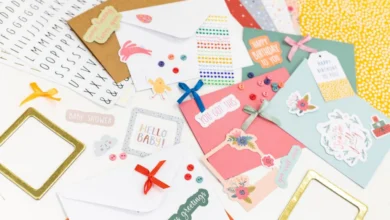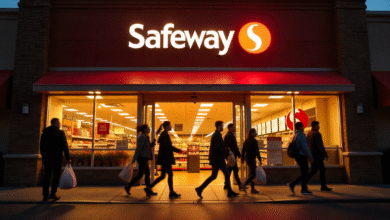Understanding the Role of an Admin in Modern E-Commerce
The Admin of Shopnaclo of any e-commerce platform holds a pivotal role in shaping the direction, experience, and reliability of the digital store. When it comes to Shopnaclo, a growing name in the online shopping world, the administrator’s responsibilities extend beyond managing inventory and overseeing daily operations. Instead, the admin acts as the backbone of the digital infrastructure, a strategic planner, and the key visionary who ensures that customers and vendors alike enjoy a seamless and secure experience.
In the case of Shopnaclo, the admin plays a multifaceted role. This includes supervising backend functionalities, ensuring cybersecurity protocols are in place, overseeing the design and usability of the site, monitoring customer interactions, managing vendor relations, and analyzing data to optimize performance. The admin doesn’t just manage; they lead, innovate, and inspire growth for the platform.
The Origins of Shopnaclo and the Admin’s Foundational Vision
Shopnaclo began as a modest online store with ambitions of offering curated and accessible fashion choices. From the very beginning, the admin envisioned Shopnaclo as more than just a transactional platform. The idea was to create a digital marketplace that combined affordability, style, and user-centric design. The early days were filled with experimentation and learning, where the admin worked tirelessly to build a foundation that was both scalable and sustainable.
This foundational vision shaped every part of the platform—from the type of products offered to the user interface and even the tone of customer service. The admin’s belief in transparency, ease of use, and responsiveness became the cornerstones of Shopnaclo’s reputation.
Bridging Technology and Retail Through Strategic Oversight
The admin of Shopnaclo leverages cutting-edge technology to ensure that every aspect of the platform remains competitive and up to date. Unlike traditional brick-and-mortar managers, the admin works with a digital canvas, implementing tools for automated inventory updates, personalized customer experiences, data-driven recommendations, and dynamic pricing algorithms.
At the heart of this is a sophisticated backend system that the admin continually refines. The use of analytics and performance monitoring tools allows the admin to respond in real-time to market trends and customer behavior. It is through this technological bridge that Shopnaclo stays agile, continually improving its offerings and maintaining customer satisfaction.
Curating the Shopping Experience
Curating an enjoyable shopping experience requires more than just attractive products. It requires an understanding of consumer psychology, trends, and behavior. The admin of Shopnaclo recognizes this and uses insights to design every element of the site with the user in mind. Navigation is intuitive, load times are minimized, product descriptions are detailed, and visual presentation is optimized for all devices.
Furthermore, the admin ensures that the customer’s journey—from browsing to checkout—is streamlined and secure. This includes selecting the right payment gateways, implementing robust data encryption, and ensuring compliance with privacy regulations. These efforts reflect the admin’s commitment to putting the customer at the center of every decision.
Vendor Management and Quality Assurance
One of the lesser-seen but highly impactful responsibilities of the admin is vendor management. As Shopnaclo operates as a digital marketplace, it relies on a network of suppliers and vendors to provide the wide range of products it offers. The admin acts as the gatekeeper in this regard, onboarding trusted vendors, verifying product quality, setting standards, and ensuring that deliveries meet expectations.
This includes setting clear terms of service, performance benchmarks, and compliance with Shopnaclo’s ethical and quality guidelines. By maintaining this rigorous oversight, the admin helps to prevent fraudulent listings, poor customer experiences, and potential legal risks. This proactive approach to vendor management ensures that customers always receive the products they were promised, contributing to Shopnaclo’s reputation and reliability.
Customer Relations and Issue Resolution
In any e-commerce platform, customer service can make or break the brand. The admin of Shopnaclo understands the importance of quick, respectful, and solution-oriented responses to customer queries and complaints. Behind every customer service email, ticket, or chat box lies a system managed by the admin that prioritizes resolution and satisfaction.
To this end, the admin monitors common pain points, refines policies for returns and refunds, and ensures that customer support staff are properly trained. More importantly, feedback is not just resolved—it is analyzed and used to implement systemic improvements. This loop of issue resolution and platform refinement reflects a mature administrative approach, one that treats customer feedback as a source of innovation.
Marketing and Brand Building Under Admin Leadership
Marketing is another arena where the admin’s influence is deeply felt. From the platform’s voice on social media to its email campaigns and search engine optimization strategies, the admin either directly manages or oversees all outreach efforts. This includes identifying target demographics, crafting compelling content, running promotional campaigns, and measuring engagement.
The admin of Shopnaclo maintains brand consistency and ensures that all marketing efforts align with the platform’s broader goals. Whether it’s launching a holiday sale, collaborating with influencers, or designing loyalty programs, these initiatives are crafted under the strategic eye of the admin to enhance visibility and attract new customers.
Innovation and Expansion: Looking to the Future
The e-commerce landscape is evolving rapidly, and the admin of Shopnaclo is not content with simply maintaining the status quo. Innovation is a critical part of the platform’s future, and the admin actively explores new technologies, markets, and business models. This includes evaluating trends like AI-driven product recommendations, augmented reality fitting rooms, cryptocurrency payments, and international shipping solutions.
Expansion also plays a key role in the admin’s strategic vision. Whether it’s broadening the product categories, entering new regional markets, or developing mobile apps, the admin remains the central figure coordinating these initiatives. The growth of Shopnaclo depends heavily on the admin’s ability to anticipate change and position the platform accordingly.
Community Engagement and Ethical Responsibility
E-commerce platforms are more than just places to buy and sell—they are part of larger digital and social ecosystems. The admin of Shopnaclo embraces this reality by promoting ethical practices and engaging with the broader community. This includes supporting sustainable products, ensuring labor ethics in the supply chain, and participating in charitable causes.
Shopnaclo under its admin leadership also encourages inclusivity in fashion, ensuring that products cater to a wide variety of body types, cultural backgrounds, and price sensitivities. This approach helps build a community around the brand, where customers feel represented and valued.
Crisis Management and Resilience
Every e-commerce platform faces challenges, from cyberattacks to supplier failures, or sudden shifts in consumer demand. The admin of Shopnaclo is responsible for steering the platform through these turbulent waters. Whether it’s responding to a security breach or adapting to logistical disruptions, the admin’s ability to respond calmly, quickly, and strategically defines the platform’s resilience.
A well-prepared admin puts contingency plans in place, builds relationships with backup suppliers, and ensures that data backups and redundancies are maintained. These behind-the-scenes efforts are what keep Shopnaclo running smoothly even when faced with adversity.
Data Privacy and Compliance Oversight
As privacy concerns grow globally, the admin ensures that Shopnaclo remains compliant with all relevant data protection laws such as GDPR and CCPA. This includes managing cookie policies, user consent protocols, and secure storage of user data. The admin is constantly reviewing new regulations and making the necessary updates to ensure both compliance and customer trust.
In doing so, the admin not only protects the platform legally but also upholds its ethical commitment to users. The transparency and responsibility with which data is managed are testaments to the leadership guiding Shopnaclo.
Building a Strong Organizational Culture
Shopnaclo is not just a digital storefront—it’s an organization with a team of developers, designers, marketers, customer service agents, and logistics coordinators. The admin is instrumental in fostering a strong internal culture that prioritizes collaboration, innovation, and excellence.
Through regular team meetings, transparent communication, and a clear vision, the admin aligns the team toward common goals. Recognition of effort, encouragement of ideas, and support during challenges make Shopnaclo not just a successful business but also a fulfilling place to work.
The Personal Drive Behind the Admin’s Success
Behind the admin’s strategic acumen lies a personal drive—a motivation born out of passion for e-commerce, customer satisfaction, and digital innovation. This personal connection to the platform is what sets the Shopnaclo admin apart. It’s more than a job; it’s a mission. From working late nights optimizing code to handling customer complaints directly, the admin exhibits a hands-on commitment that reverberates throughout the entire organization.
This deep involvement ensures that the platform Admin of Shopnaclo never strays from its founding principles, no matter how much it grows or how quickly the market evolves.
Conclusion The Admin as the Architect of Shopnaclo’s Identity
The admin of Shopnaclo is not just a figure behind the scenes but the architect of everything that makes the platform effective, innovative, and trusted. From technological infrastructure to customer satisfaction, from ethical sourcing to team leadership, every aspect of Shopnaclo carries the imprint of its admin’s vision and hard work.




